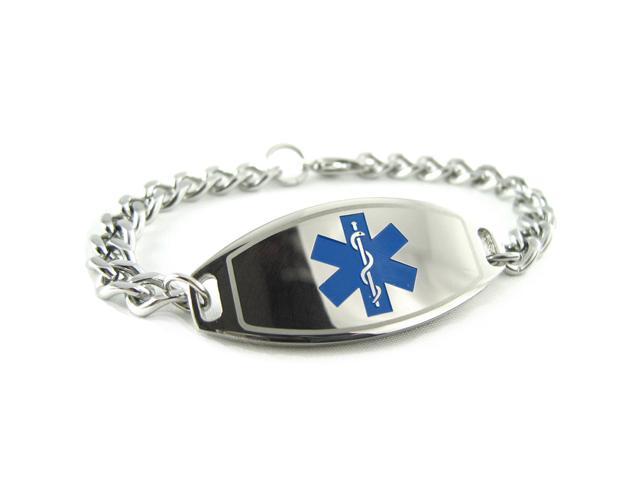As our loved ones age, ensuring their safety and well-being becomes a top priority. Medical alert systems provide peace of mind by offering immediate assistance in case of emergencies. However, discussing these devices with a loved one can be a delicate conversation. Many seniors may feel hesitant, believing that using a medical alert system signals a loss of independence.
If you want to introduce a medical alert system to a family member, approaching the topic with sensitivity and empathy is key. In this guide, we’ll explore strategies to introduce the concept smoothly and help your loved one see the value in using a medical alert system.
Understanding the Resistance
Before broaching the subject, it’s important to recognize why a loved one may resist the idea of a medical alert system. Common reasons include:
- Fear of losing independence – Many seniors equate medical alert systems with declining health and dependence on others.
- Denial of health risks – Some may feel they are still in good health and don’t need extra support.
- Concerns about stigma – Wearing a medical alert device may make them feel labeled as “old” or “frail.”
- Lack of understanding – They might not be aware of how these systems work or how they can be beneficial.
By understanding these concerns, you can tailor your conversation to address their worries while highlighting the benefits of the system.
Choosing the Right Moment
Timing is crucial when introducing the idea of a medical alert system. Here are some key moments when the conversation may feel more natural:
- After a close call – If your loved one recently experienced a fall or a medical emergency, they may be more open to discussing preventive measures.
- During a routine health discussion – Bringing up a medical alert system during a general conversation about health and safety can make it feel like a practical addition rather than an urgent necessity.
- When discussing future plans – Conversations about aging, home modifications, or long-term care plans are good opportunities to introduce the concept of a medical alert system.
- Through a relatable story – If you know someone who benefited from a medical alert system, sharing their experience can help your loved one see the value in having one.
Framing the Conversation
The way you introduce the topic can influence how your loved one reacts. Consider using the following approaches:
1. Focus on Independence, Not Limitations
Many seniors fear losing their independence, so position the medical alert system as a tool for maintaining their freedom. Explain how having quick access to help allows them to continue living independently for longer.
Example: “I know how much you love living on your own. A medical alert system would help you stay independent by ensuring you can get help right away if you ever need it.”
2. Highlight the Benefits
Rather than emphasizing risks, focus on the positive aspects of having a medical alert system:
- Immediate access to emergency services
- Peace of mind for both them and their family
- Advanced features like fall detection, GPS tracking, and medication reminders
- The ability to maintain an active lifestyle without fear
3. Make It a Family Decision
Instead of presenting the system as something they need, frame it as something you would feel better about.
Example: “I would feel so much more at ease knowing that if anything happens, you can get help immediately.”
4. Involve Them in the Selection Process
Let your loved one have a say in choosing the system. Research different models together, focusing on designs that suit their preferences and lifestyle. Some medical alert devices are discreet and wearable, while others come with additional features like mobile connectivity.
5. Share Real-Life Examples
Stories of people who benefited from a medical alert system can make the concept feel more relatable.
Example: “A friend’s mother fell while getting the mail, and because she had a medical alert device, she got help right away. Without it, she could have been stuck outside for hours.” BraggingMommy has shared stories about how medical alert systems have saved lives, reinforcing the importance of having one.

Addressing Common Concerns
Your loved one may have specific concerns about using a medical alert system. Here’s how to address them:
- Cost Concerns: Medical alert systems can be affordable, and some insurance plans or veteran benefits may cover part of the cost. Highlight that it is a small price to pay for safety.
- Technology Fears: Many modern systems are simple to use. Offer to set it up for them and show them how it works.
- Privacy Worries: Reassure them that medical alert systems are designed for emergencies, not surveillance.
- Aesthetic Issues: If they don’t want a bulky device, show them stylish and discreet options like pendants or wristbands.
Making the Transition Easier
Once your loved one agrees to try a medical alert system, ease the transition with these steps:
- Start with a trial period – Some companies offer trial periods so they can test the device before committing.
- Teach them how to use it – Walk them through how to activate the alert and test it regularly.
- Encourage them to wear it consistently – Remind them that a medical alert system is only effective if it’s worn at all times.
- Check in regularly – Ask them how they feel about the device and if they have any concerns or questions.
Conclusion
Introducing a medical alert system to a loved one requires patience, understanding, and the right approach. By focusing on independence, safety, and peace of mind, you can help them see the benefits of having a reliable way to get help when they need it.
Remember, the goal is to empower your loved one, not to force them into a decision. With the right conversation and a little reassurance, they’ll come to appreciate the value of a medical alert system in maintaining their safety and well-being.





